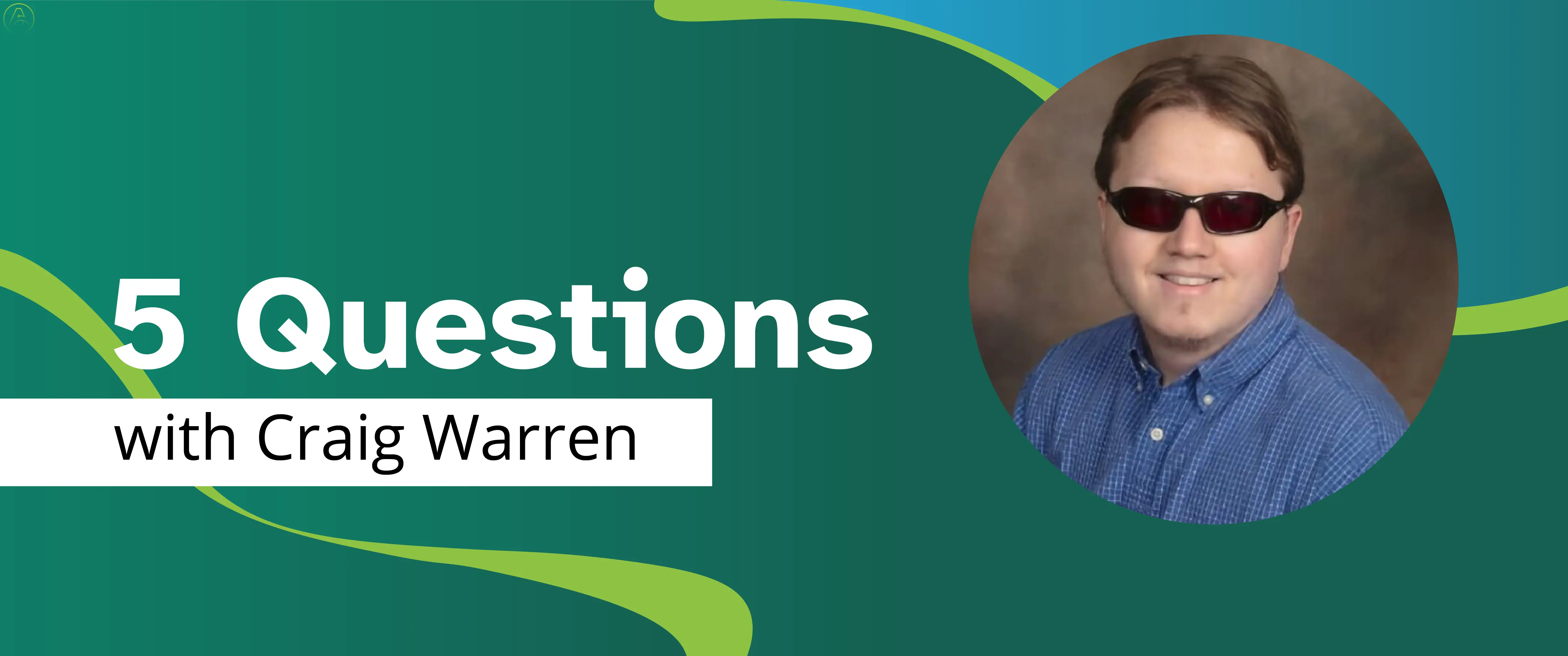As many as one in 100 Americans exhibit milder motor or vocal tics, but only about 1 in 360 have the full symptoms of Tourette’s Syndrome (TS). To understand the difference between tics, tic disorders, and Tourette’s, this article will answer symptom-related questions, including:
What are the early signs of Tourette’s?
What is a tic?
What are facial tics?
What are motor tics?
What are vocal tics?
What other motor tic disorders mimic Tourette’s?
When should I see a doctor about Tourette’s symptoms?
How can I find a reputable care provider for Tourette's?
What is the diagnostic process for Tourette’s?
What are the early signs of Tourette’s?
Other conditions can cause tics, but Tourette’s Syndrome (TS) is the most severe form of a tic disorder. The main symptoms of Tourette’s are multiple motor tics and at least one vocal tic. These tics may become more severe when the person is under stress.
These tics must be present for at least a year to receive a diagnosis of TS.
What is a tic?
Tics are sudden, brief, intermittent movements or sounds. They can range from mild to severe, and can include a limited amount of muscle groups (simple tics), or multiple parts of the body (complex tics).
To understand the difference between simple tics and complex tics, see Seven Questions You Might Have About Tourette’s Syndrome.
What are facial tics?
Facial tics are uncontrollable spasms in the face. These may include:
Eye blinking
Nose wrinkling
Squinting
Facial tics are not usually a serious medical condition, but they can be a sign of an underlying ailment. Sometimes, facial tics can be severe enough to impact vision, like if repeated blinking forces the eye closed throughout the day.
Most facial tics go away with time. In fact, most children under 7 who show signs of facial tics outgrow their tics within a few months. If facial tics last longer than a month, interfere with everyday life, or come with other symptoms like seizures or a rash, it’s always a good idea to talk to your doctor.
What are motor tics?
Motor tics are sudden, jerky body movements that are out of the person’s control. They typically affect the shoulders or head. Motor tics are not usually dangerous, although some can be painful or embarrassing if a person hits an object or another person during a tic.
Occasionally, motor tics are a side effect of medications, like some stimulants or antipsychotics, but can also accompany other conditions like ADHD or cerebral palsy.
Simple motor tics, which usually affect only one muscle group, may include:
Blinking or squinting
Nose-twitching
Shrugging
Complex motor tics, which can affect multiple parts of the body at once, may include:
Touching, rubbing, or tapping objects or people
Clapping, throwing, or pinching
Imitating other people’s movements
What are vocal tics?
Vocal tics are involuntary noises that come from a person’s mouth. Not all of these tics involve the vocal cords, so many doctors and people with TS prefer the term phonic tics. These tics may be simple or complex, and can involve speaking, shouting, or simply moving the mouth or nose to make noise.
Simple vocal tics may include:
Coughing
Grunting
Hooting/yelping
Throat clearing
Complex vocal tics may include:
Stuttering or interrupting
Repeating your own words (palilalia)
Repeating someone else’s words (echolalia)
Saying or yelling obscenities (coprolalia)
What other motor tic disorders mimic Tourette’s?
There are three primary tic disorders:
Tourette's Syndrome
Persistent motor or vocal tic disorder
Provisional tic disorder
Tourette’s is the most complex of these disorders because it requires both vocal and motor tics that have lasted over a year.
Persistent motor or vocal tic disorder is also called chronic tic disorder. Someone with persistent tic disorder has either motor tics or vocal tics, but not both, occurring for at least a year.
Provisional tic disorder is the label given if the tics have not been present for an entire year. These can include both motor and vocal tics, but is not considered Tourette’s until the tics have lasted for a year or more.
When should I see a doctor about Tourette’s symptoms?
Tics usually show up between ages 2 and 15, with most Tourette’s symptoms appearing around age 6. It’s unusual but not unheard of for someone to develop Tourette’s in adulthood. If you notice consistent tics in yourself or a loved one, discuss them with a medical professional. Some family doctors may refer you to a neurologist, a doctor specializing in care for the nervous system.
Ask the provider about concerns and symptoms beyond tics. Most people with TS also have additional mental, behavioral, or developmental conditions, the most common being ADHD, anxiety, or obsessive-compulsive disorder (OCD). Learn more about co-existing conditions in our article, How Should I Prepare for Adult Life with Tourette’s?
How can I find a reputable care provider for TS?
The best place to start is with your primary care provider, who can diagnose tic disorders or refer you to a neurologist. If you’re not sure where to start, Ability Central maintains a searchable database for non-profits specializing in Tourette’s Syndrome. This database allows you to search by location and specialty to find a provider who fits your needs.
What is the diagnostic process for Tourette’s?
Tourette’s and other tic disorders are typically diagnosed with observation, rather than with tests. To diagnose TS, a doctor will ask:
Do you have both motor and vocal tics that occur several times daily, every day, or intermittently for at least one year?
Did the tics start before turning 18 years old?
Are you on medication that’s known to cause tics, like stimulants or antipsychotics?
Do you have a medical condition known to cause tics, like Huntington’s disease?
Since there are no tests to diagnose TS, common tics are often diagnosed by a primary care provider (PCP) or mental health worker. In the rarest cases, your doctor might refer you to a neurologist for further testing, like an MRI or CT scan, to rule out other conditions.
Where can I get more information about Tourette’s Syndrome (TS)?
To learn more about TS, see:



